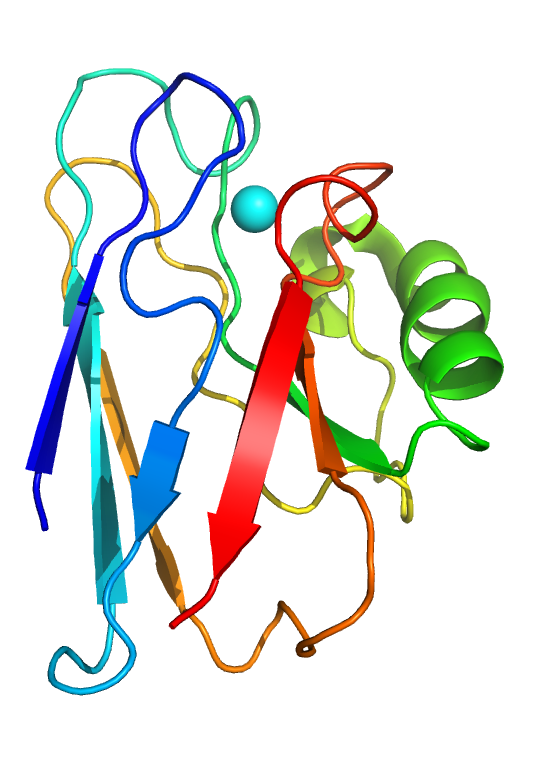Antimicrobial Peptides
Antimicrobial peptides are naturally occuring parts of the innate immune systems of all higher organisms. These peptides are short, amphiphilic molecules that generally have a net positive charge.
Our goal is to understand the role the peptide sequence plays in activity of the peptides, and we approach this by making rational substitutions in the peptide sequence, with both natural and non-natural amino acids, to investigate this.
We use a combination of biophysical techniques (fluorescence spectroscopy, circular dichroism, etc) to characterize how these molecules interact with model lipid membranes. We also employ a variety of microbiological
methods and techniques to characterize the efficacy and mechanism of these peptides.
Recently, we began investigating the clinically approved antimicrobial peptide Daptomycin. This molecule is a cyclic lipopeptide which is preferentially active against Gram positive bacteria. We are investigating how this molecule interacts with lipid membranes, and
how the specific functional groups on daptomycin contribute to it's activity.
Antimicrobial Surfaces
Surgically implanted medical devices are a common area where infections can occur. This impacts trauma-related implants as well as devices such as neurostimulators.
Working in collaboration with materials scientists, we are developing thin-film coatings that can inhibit bacterial growth on these devices. We have developed coatings that can
resist the colonization of the device (kill on contact) as well as coatings that can kill bacteria in the wound site (distal to the implant).
We use a combination of microbiological and analytical methods to characterize the efficacy of the coatings and the dynamic behavior of the coatings.
Biomarker Peptides
Biomarkers are naturally ocurring biomolecules that indicate the presence of a disease or condition in the host. Peptide biomarkers have been identified for a variety of conditions including numerous types of cancers.
As part of a collaborative effort, we are working to develop and characterize a novel peptide sensing platform based around the binding of peptides to a gold nanoparticle and subsequent interactions with a protein-based nanopore and measuring resultant changes in electrical current through the pore.
We're interested in developing a predictive model allowing current fluctuations to predict the presence of specific biomarker peptides from bodily fluids.
Protein Folding & Stability
Proteins have a wide variety of industrial applications which often require the proteins to act in a chemically controlled, in vitro environment. In order for these processes to be effective, the proteins need to be stable enough to undergo numerous rounds of
reactions before exhaustion. We are focused on supplementing proteins with ionic liquid solutions with the goal of enhancing protein stability. Ionic liquids are a broad class of "molten salts" which are ionic compounds that exist in liquid form at room temperature in the absence of solvent.
Our studies focus on varying the identity of the anions and cations in the ionic liquid and determining the impact on protein stability. We use a variety of model proteins with different 3D folds as model systems.




 Home
Home